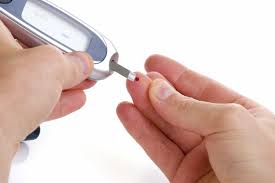The Canadian Diabetes Association (CDA) recommends that people with diabetes who are using insulin more than once a day should self-monitor their blood glucose levels at least 3 times a day. The CDA also recommends that people with type 2 diabetes who use insulin once a day should test their blood glucose levels once a day at different times of day. People with type 2 diabetes who are not using insulin should speak to their physician or primary health care provider about how often they should test. The frequency of monitoring depends on your treatments and how well your blood sugar is controlled.
A blood glucose meter is used to test blood glucose at home and to determine whether blood glucose levels are in the target range. Meters can be obtained at most pharmacies. Testing glucose levels helps put the person with diabetes in control and be more active in managing their condition. Using blood glucose meters to determine the effects of certain foods on blood glucose levels can also help a person with diabetes to choose appropriate foods more carefully.
A person with diabetes should talk with their diabetes educator or pharmacist about which model of glucose meter is appropriate for them. Anyone using a glucose meter should receive proper training so that they can test their blood glucose levels properly.
Ask a diabetes educator about:
- the size of the drop of blood needed
- the type of blood glucose strips to use
- how to check if the meter is accurate (the meter should be checked at least once a year)
- how to code the meter
- how to clean the meter
If a person with diabetes experiences symptoms of hypoglycemia (i.e., low blood glucose), they should check their blood glucose immediately. If a meter is not immediately available, the symptoms should still be treated with the following guidelines:
Eat or drink a fast-acting carbohydrate (15 g):
- 3 to 5 glucose tablets (the exact amount will depend on the glucose content per tablet of the brand you have; check to make sure you are aware of this amount and take enough to make up 15 g of glucose)
- ¾ cup (175 mL) of orange juice or regular soft drink
- 6 Life Savers®
- 1 tablespoon (15 mL) of honey
- 3 teaspoons (15 mL) or 3 packets of table sugar dissolved in water
Wait 15 minutes, then check blood glucose again. If it is still low, treat again (repeat step 1).
Once the hypoglycemia has been reversed, if the next meal is more than one hour away, or if the person is going to be active, they should eat a snack, such as a half-sandwich or cheese and unsalted crackers (something with 15 g of carbohydrate and a protein source).
Certain people at risk of hypoglycemia may be advised by their doctor to carry a prefilled 1 mg glucagon injection and make it readily available for emergency situations. This medication is intended to increase blood glucose levels rapidly.
Do-it-yourself tests for ketones are useful during times of illness. Ketones are potentially dangerous acids that build up in your blood when you lack insulin. Ketone buildup is much more common if you have type 1 diabetes. Talk to your doctor or primary health care provider about how to test for ketones.



